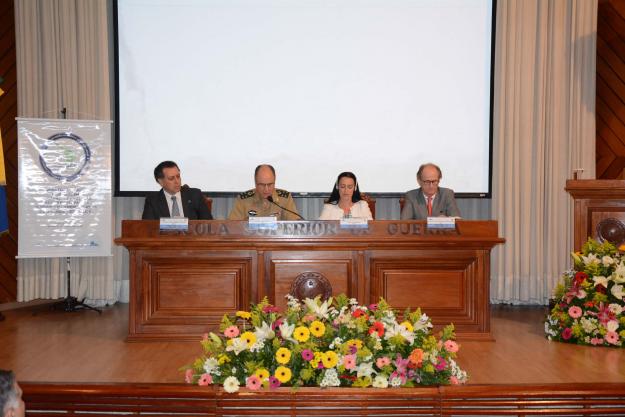
The opening of the Exercise on Assistance and Protection for Latin America and the Caribbean (EXBRALC II 2017) training which was held in Rio de Janeiro, Brazil, from 28 August – 1 September 2017.
THE HAGUE, Netherlands – 8 September 2017– First Responders from Latin America and the Caribbean acquired essential knowledge on responding to emergencies involving hazardous chemicals after an Exercise on Assistance and Protection for Latin America and the Caribbean (EXBRALC II 2017) training held in Rio de Janeiro, Brazil, from 28 August – 1 September 2017.
The course, managed by Organisation for the Prohibition of Chemical Weapons (OPCW), aimed to consolidate the knowledge acquired by responders in the 2017 regional training cycle, and boost the skills they had gained during the basic course held in Uruguay and advanced training in Argentina.
As part of the EXBRALC II 2017, the Regional Centre for Assistance and Protection of Chemical Weapons (CAPAQ-BRASIL), was also officially launched. The Chief of Ministry of Foreign Affairs office in Rio de Janeiro, H.E. Ambassador Eduardo Prisco Paraiso Ramos, expressed his appreciation of the successful cooperation between Brazil and the OPCW, stated: ‘’ The establishment of CAPAQ-BRASIL represents an important milestone for the integration of chemical protection activities through which, Brazil will continue to provide its excellent support to OPCW activities in the region.”
The course benefited 38 participants representing various agencies involved in emergency response from 18 countries of Latin America and the Caribbean. One of the participants representing the Peruvian Marine Corps, Major Victor Ibanez Valencia noted: ‘’The exercise was not only comprehensive, but also represented a superb opportunity to share our experiences and demonstrate what we have achieved as Group of Latin American Countries and the Caribbean.’’
Brazil has been actively cooperating in regional and international capacity building activities since 2009 and has become an important partner for the OPCW in the provision of chemical defense training in Latin America and the Caribbean.
Background
As the implementing body for the Chemical Weapons Convention, the OPCW oversees the global endeavour to permanently eliminate chemical weapons. Since the Convention’s entry into force in 1997 – with its 192 States Parties – it is the most successful disarmament treaty eliminating an entire class of weapons of mass destruction.
Ninety-six per cent of all chemical weapon stockpiles declared by possessor States have been destroyed under OPCW verification. For its extensive efforts in eliminating chemical weapons, the OPCW received the 2013 Nobel Prize for Peace.
